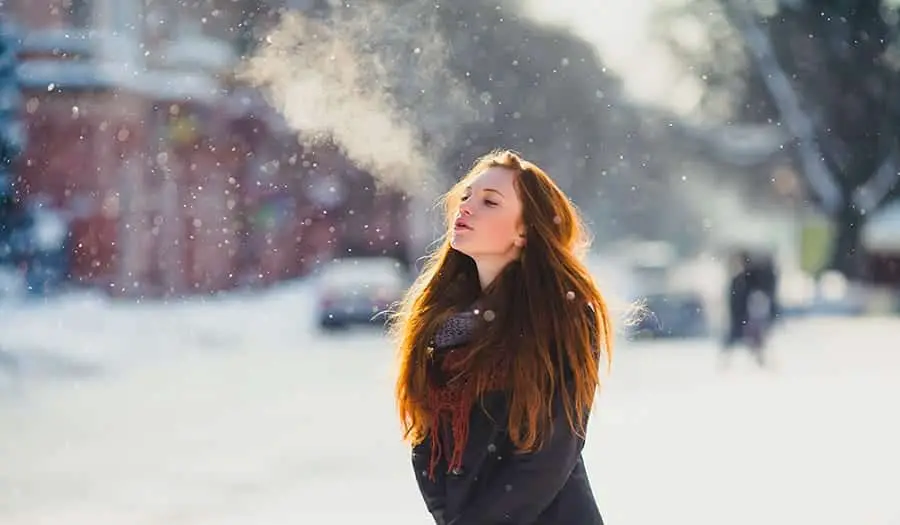The main difference between evaporation and condensation is that evaporation is a physical process where liquid changes into a gaseous state. In contrast, condensation is a physical process where gas changes into a liquid state.
For the continuous movement of water on, below, or above the surface of the earth; two of the most important physical processes are evaporation and condensation.
Not to mention, there are some others too that are directly or indirectly responsible for the steady completion of the water cycle. But, due to the need for the topic, right now, we are only interested in the process of evaporation and condensation.
Difference Between Evaporation and Condensation
| Evaporation | Condensation | |
| 1. | Evaporation is physical process where liquid changes into gaseous state. | Condensation is physical process where gas changes into liquid state. |
| 2. | The higher the temperature, the higher will be the rate of evaporation. | The lower the temperature, the higher will be the rate of condensation. |
| 3. | This process occurs before a liquid reaches its boiling point. | This process occurs before the gas reaches its freezing point. |
| 4. | Evaporation is a cooling process. | Condensation is a warming process. |
| 5. | This process is an endothermic phenomenon. | This process is an exothermic phenomenon. |
| 6. | Evaporation normally takes place at low altitudes. | Condensation normally takes place at high altitudes. |
| 7. | Examples of evaporation include evaporative coolers, drying of wet clothes, etc. | Examples of condensation include dew on the grass, visible breadth during winters, etc. |
What is evaporation?

Evaporation is a type of phase transition in which a substance directly changes from a liquid state to its gaseous state. Unlike boiling, according to the definition of evaporation, this process is a surface phenomenon.
Not to mention, the process of evaporation can occur at any temperature. In fact, the higher will be the temperature, the higher will be the rate of evaporation. Moreover, Evaporation generally takes place at low altitudes.
Well, have you ever wondered why during the process of evaporation, water (liquid) changes into vapor (gaseous state)?
According to the kinetic theory, when we heat a liquid, its pressure decreases drastically. Therefore, as a result, the force of attraction between molecules becomes weak. Hence, a liquid transforms into its gaseous state.
Evaporation is a cooling process, WHY?
In order to change its phase from liquid to gaseous state, a liquid (say water) has to absorb an ample amount of heat (energy) from its surrounding.
Must read, Four Fundamental States Of Matter Explained
Therefore, as a result, bringing down the temperature of the surrounding. Hence, causing the cooling effect.
In other words, when water evaporates, it takes up energy from its surroundings, therefore, cools the environment. That’s why evaporation comes in the realm of endothermic processes.
Examples of evaporation in daily life
There can be so many examples of evaporation that can be easily seen in our everyday life. Here is a list of some of the common examples or applications of evaporation.
- Evaporation of sweat from our body
- The smoke coming out of a cup of hot coffee
- Food preservation
- Evaporation of a nail paint remover
- Evaporative Coolers
- Drying of Wet clothes
- Working of a pressure Cooker
- formation of salt
- Melting of ice cubes
- Formation of the water cycle
- Evaporation rate of ethanol
- Drying of a wet floor
- The process of distillation
- Drying of river beds
- Hairdryers
- Ironing of clothes, etc.
What is condensation?

Condensation is a type of phase transition in which a substance directly changes from a gaseous state to its liquid state. According to the definition of condensation, it can only take place on salt, hygroscopic nuclei-pollen grains, carbon particles, etc.
This process occurs before the gas reaches its freezing point. In fact, the lower the temperature, the higher will be the rate of condensation. Moreover, condensation generally takes place at high altitudes.
Well, have you ever wondered why during the process of condensation, vapor (gas) changes into water (liquid state)?
Again, according to the kinetic theory, when we cool down the gas, its pressure increases drastically. Therefore, as a result, the force of attraction between molecules becomes too strong. Hence, a gas transforms into its liquid state.
Condensation is a warming process, WHY?
According to the definition of condensation, in order to change its phase from a gaseous to a liquid state, a gas (say vapor) has to release an ample amount of heat or energy to its surrounding.
Therefore, as a result, increasing the temperature of the surrounding. Hence, causing the warming effect.
In other words, when water condenses, it releases energy, therefore, warms the environment. That’s why condensation comes in the realm of exothermic processes.
Editor’s Choice: Endothermic vs Exothermic – What’s the Difference?
Examples of condensation in daily life
There can be so many examples of condensation that can be easily seen in our everyday life. Here is a list of some of the common examples or applications of condensation.
- Formation of the water cycle
- Sweating of cold drinks
- Fogs on the windshield
- Clouds in the sky
- Fog is the air
- Condensation in air conditioning
- In power generation
- In thermal management
- Refrigeration
- Water desalination projects
- Dew on the Grass
- Visible Breadth During Winter
- Steamy mirror in your bathroom
- Condensation in water preservation, etc.
That’s it for this post. If you like this article, share it if you like, like it if you share it. You can also find us on Mix, Twitter, Pinterest, and Facebook.
You might also like:
- Difference Between Conductors and Insulators (Tabular Form)
- Difference Between Scalar and Vector (Tabular Form)
- Top 6 Exclusive Sublimation Examples in Daily Life
- Sublimation Definition, Process, Facts & Examples

@Atul Sinha,
Thanks for the information not available anywhere except this article.
Hello Smith, Thank you so much for your warm response. Keep visiting us!!!